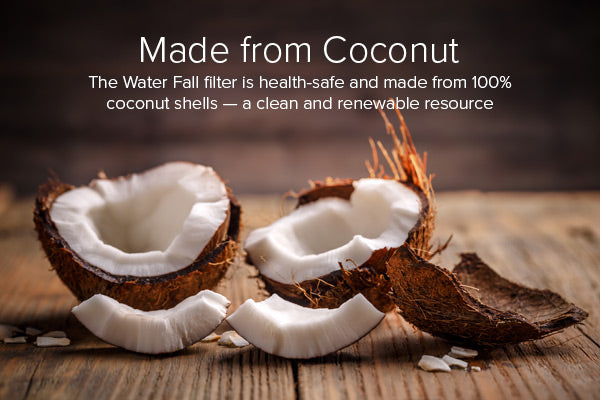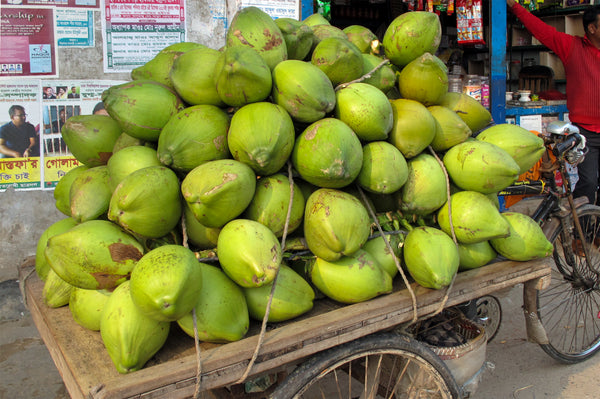
All of our water filtration products here at KOR, including KOR Plus, our new antioxidant and alkaline water bottle and filter use coconut carbon as the main media for making great tasting water. So why use coconut carbon vs. coal or wooden carbon as found in other filtered water products?
Why use coconut shells?
Activated carbon is the filtering agent that eliminates contaminants from water. Carbon pulls unwanted particles, first, to its surface and then deep within its pores, leaving only the purest water possible.
Coconut shells are a renewable resource made of high-grade carbon and are ideal for filtration due to their high percentage of micro-pores on their surface, nearly 50 percent more than coal, making it the most promising option for removing a wide variety of particles and pollutants.
One of the guiding principles for all KOR products is the commitment to sustainability. So, when it came time to create our filtration products, we went with natural sustainable coconut shells.

Benefits of Coconut Carbon Filters
The key benefits of using coconut shell carbon for water filtration include:
- Renewable source of carbon
- Manufacturing is easy on the environment
- Highly porous and tightly structured
The coconut shell filtration systems featured in KOR products have been custom developed to remove chlorine, chloramines (chlorine and ammonia) and objectionable tastes and odors found in tap water. It also reduces hydrogen sulfide and other organic contaminants. Because of coconut carbon’s wide surface area and its porosity, this form of filtration can remove chemicals that have proven difficult to expel using other forms of carbon.
Additionally, our coconut shell filters have independently undergone the NSF 42 test. This test establishes the minimum requirements of filtration systems to reduce aesthetic and non-health related contaminants like chlorine, taste, and odor from drinking water. The NSF 42 test analyzes the carbon filter for material safety, structural integrity and aesthetic, and claims about the reduction of non-health related contaminants.
Coconut shells are a purer form of carbon compared to coal and wood filters. Other forms of activated carbon can add to an off-putting taste from inorganic ash, whereas coconut carbon is more tightly structured and won’t leach.
As previously mentioned, the fact that coconut shells are easy on the environment is hugely important to KOR. Coconuts will continue to grow without needing to cut down the tree itself (unlike when you use wood-based filters) and they’re harvested three to four times per year. Coconut shells can be easily preserved and manufacturing them as filters produces less carbon dust than their coal and wooden counterparts.

Upon learning the ins and outs of coconut shell filters, it makes sense to seize the opportunity to use these renewable resources. Checkout our entire line of filtration products, from portable to at home.
